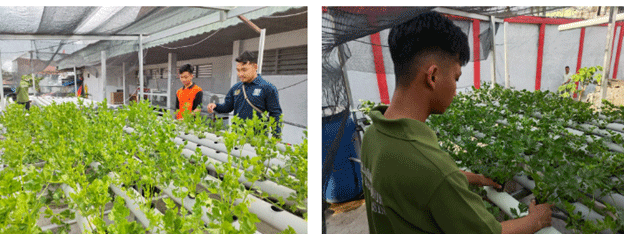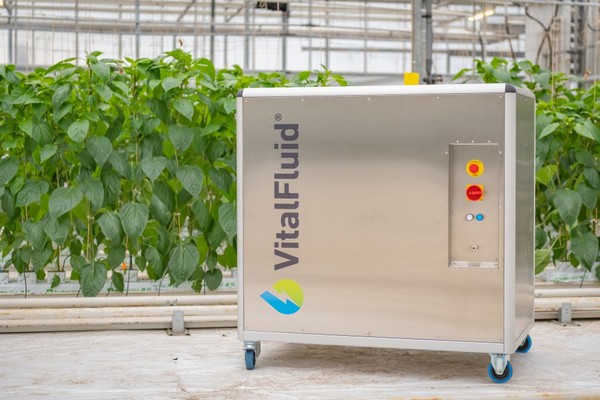In Banjarmasin Prison, South Kalimantan, hydroponic farming is transforming the lives of inmates, creating a unique environment for both food security and self-development. Through this initiative, overseen by the Ministry of Law and Human Rights of South Kalimantan, inmates gain essential farming skills that prepare them for life beyond prison walls. Led by Faozul Ansori, Head of Banjarmasin Prison, this initiative exemplifies how prisons can offer rehabilitative programs that not only provide sustenance but also cultivate independence and responsibility among inmates.
Hydroponics: An Effective Solution for Limited Space and Resources
Hydroponics, a soil-less farming technique, uses nutrient-rich water to grow plants, making it an ideal system for enclosed environments like prisons. The technology is efficient, requiring less water than traditional farming, and doesn’t demand large land areas—perfect for institutions with limited space. In Banjarmasin, this method enables inmates to grow vegetables year-round, supporting the prison’s goal of reducing dependency on external food supplies and promoting self-sufficiency.
Inmates involved in the program show high enthusiasm, actively participating in every stage of the hydroponic process, from planting seeds to harvesting crops. Ansori notes, “The inmates are not only learning a valuable skill but also engaging in positive activities that fill their time productively.”
Benefits Beyond Food Security
This program is about more than growing vegetables. The inmates learn skills that can open doors to employment or entrepreneurship in modern agriculture once they are reintegrated into society. Hydroponic farming, as a growing sector in Indonesia’s agricultural industry, can offer them a viable income stream. According to data from the Indonesian Ministry of Agriculture, the hydroponic vegetable market is expanding rapidly, with demand growing by nearly 20% per year, making hydroponics a practical skill for reformed inmates seeking jobs in urban farming.
Additionally, the method aligns with sustainable practices, conserving water and reducing the need for pesticides, further enhancing its appeal in Indonesia’s agricultural shift toward greener technologies.
A Positive Impact on Inmate Development
The skills acquired in Banjarmasin Prison are more than technical—they also build confidence and foster responsibility among participants. Faozul Ansori hopes that by learning hydroponic farming, inmates will return to their communities equipped with valuable skills that encourage a self-sufficient, productive life. “Our goal is to give them the confidence to create a better life post-release,” Ansori explains, “whether they start a small hydroponic venture or join the agricultural workforce.”
Community support for these initiatives is strong, with local leaders and organizations acknowledging the positive impacts such programs can have on reducing recidivism. By equipping inmates with in-demand skills, the program at Banjarmasin Prison contributes to both personal rehabilitation and broader community development.
The hydroponics program at Banjarmasin Prison demonstrates how modern agricultural practices can have far-reaching benefits beyond food production. By fostering a sense of independence and instilling valuable skills, this initiative not only supports food security within the prison but also helps inmates build a foundation for a productive, stable future. Through sustainable, practical training, Banjarmasin Prison is setting a powerful example for rehabilitation programs that serve both individuals and society.












